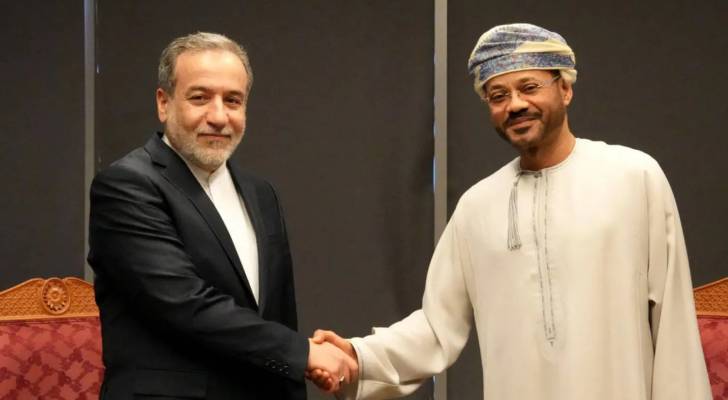Iranian Foreign Minister Abbas Araghchi meets with Omani Foreign Minister Sayyid Badr Albusaidi in Muscat, Oman, April 12, 2025.
‘Positive atmosphere’ as Iran–US talks conclude in Oman, say officials
Iran and the United States began indirect talks in Oman on Saturday to revive stalled negotiations over Tehran’s rapidly advancing nuclear program.
The discussions come amid renewed threats from US President Donald Trump, who warned of potential military action if no agreement is reached.
According to Iranian Foreign Ministry spokesperson Esmail Baghaei, "indirect talks between Iran and the United States with the mediation of the Omani foreign minister have started." Messages are being exchanged through Oman’s top diplomat, Badr al-Busaidi, with each delegation in separate rooms.
The Iranian delegation is led by Foreign Minister Abbas Araqchi, while Trump’s Middle East envoy, Steve Witkoff, heads the US team.
These are the first nuclear-related discussions between Iran and the Trump administration, including during his earlier presidency from 2017 to 2021.
An unnamed Iranian negotiator told Iran’s semi-official Tasnim news agency that the “atmosphere of the talks is positive.” Baghaei confirmed on state TV that “this is a beginning,” noting that both sides are presenting their main positions via the Omani mediator.
However, he denied reports claiming the talks focused on prisoner exchanges and limited sanctions relief in exchange for nuclear restraints.
According to Iranian state media, Araqchi met with Oman’s foreign minister ahead of the session to outline Iran’s “key points and positions to be conveyed to the US side.”
Despite a cautious tone from Tehran, Iranian officials confirmed that Supreme Leader Ayatollah Ali Khamenei has granted Araqchi full authority for the negotiations. "There is a chance for initial understanding on further negotiations if the other party enters the talks with an equal stance," Araqchi told Iranian TV.
Tensions remain high, as Iran continues enriching uranium up to 60 percent purity — near weapons-grade level — and Trump’s administration has reimposed a “maximum pressure” sanctions campaign since February. Trump also scrapped the 2015 nuclear deal in 2018 and has repeatedly threatened to strike Iran’s nuclear sites if no deal is made.
Iran insists its nuclear program is for peaceful energy purposes, while the US, 'Israel', and European powers view its enrichment activities as a potential step toward developing nuclear weapons.
The stakes are high. Failure in talks could raise the risk of a broader regional conflict. Since 2023, the Middle East has seen escalating violence — wars in Gaza and Lebanon, Houthi attacks in the Red Sea, and the collapse of Syria’s government.
Iran’s influence in the region has also waned, with its "Axis of Resistance" allies, including Hamas and Hezbollah, significantly weakened in recent months. Tehran has warned neighboring countries hosting U.S. bases that they could face “severe consequences” if involved in any military action against Iran.
While the talks are not expected to continue beyond this initial round, observers hope they can open the door to more substantive negotiations and help ease regional tensions. There has been no public comment from the US side so far.




